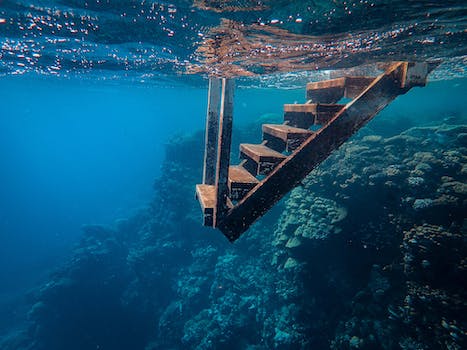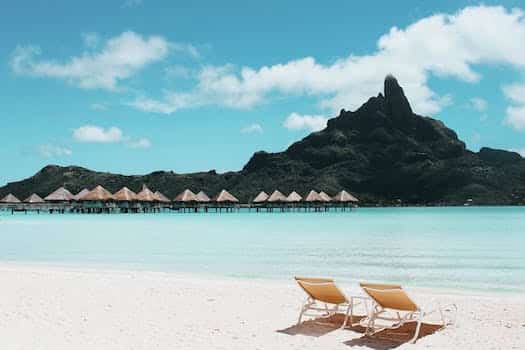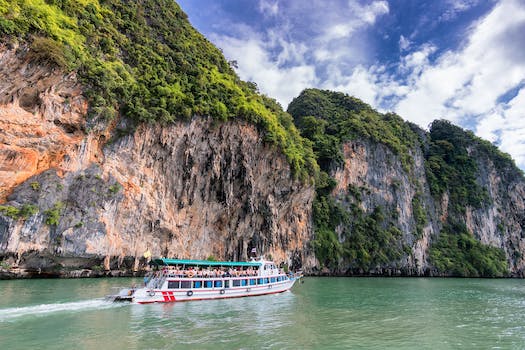Scuba diving is an incredible way to explore the beauty of the underwater world. And what better way to take your diving experience to the next level than by exploring remote islands? From the crystal-clear waters of the Caribbean to the vibrant coral reefs of the Pacific, these 10 epic scuba diving adventures will take you on a journey you’ll never forget.
- 1. Scuba Diving Adventures on Remote Islands
- 1.1. Introduction
- 1.2. Choosing the Best Remote Island for Scuba Diving
- 1.3. Preparing for Your Scuba Diving Adventure
- 1.4. Safety Tips for Scuba Diving on Remote Islands
- 1.5. Exploring the Underwater World of Remote Islands
- 2. Introduction
- 2.1. The allure of remote islands for scuba diving enthusiasts
- 2.2. What makes scuba diving on remote islands unique
- 2.3. The challenges of scuba diving on remote islands
- 3. Choosing the Best Remote Island for Scuba Diving
- 3.1. Factors to consider when selecting a remote island for scuba diving
- 3.2. Top remote islands for scuba diving adventures
- 3.3. The best time of year to visit remote islands for scuba diving
- 4. Preparing for Your Scuba Diving Adventure
- 4.1. Packing for a scuba diving trip to remote islands
- 4.2. Choosing the right scuba gear for remote island diving
- 4.3. Training and certification requirements for scuba diving on remote islands
- 5. Safety Tips for Scuba Diving on Remote Islands
- 5.1. Precautions to take before and during a scuba diving adventure on remote islands
- 5.2. What to do in case of an emergency while scuba diving in a remote location
- 5.3. Dealing with unique hazards and challenges of scuba diving on remote islands
- 6. Exploring the Underwater World of Remote Islands
1. Scuba Diving Adventures on Remote Islands
Scuba diving is a thrilling activity that allows you to explore the depths of the ocean and discover the amazing world that lies beneath the surface. While there are many great scuba diving destinations around the world, some of the most epic adventures can be found on remote islands. These islands offer unspoiled and pristine environments that are perfect for scuba diving. From vibrant coral reefs to deep blue trenches, there is no shortage of incredible dive sites to explore. In this article, we will take a look at 10 epic scuba diving adventures on remote islands that are sure to take your breath away.
1.1. Introduction
Scuba diving is an exhilarating experience that can take you to some of the most remote and beautiful places on earth. If you’re looking for an adventure that combines the excitement of exploring uncharted territory with the thrill of diving into the unknown, then you need to check out these 10 epic scuba diving adventures on remote islands. From the crystal-clear waters of the Caribbean to the rugged coastline of the Pacific, these destinations offer some of the best diving experiences in the world. So grab your gear and get ready for the dive of a lifetime!
1.2. Choosing the Best Remote Island for Scuba Diving
When it comes to scuba diving adventures, remote islands offer some of the most unique and breathtaking experiences. However, choosing the best remote island for scuba diving can be a challenge. Factors such as water temperature, visibility, marine life, and accessibility all come into play. Here are some tips to help you choose the best remote island for your scuba diving adventure.
First, consider the water temperature. Some remote islands have colder waters, while others are warmer. If you prefer warmer waters, islands in the Caribbean or South Pacific might be a good choice. If you don’t mind colder waters, islands in the North Atlantic or South Atlantic might be more suitable.
Next, consider the visibility. Islands with clear waters are ideal for scuba diving, as you’ll be able to see a lot more. Islands with murky waters might not be as enjoyable.
Marine life is another important factor to consider. Some remote islands are home to a wide variety of marine life, while others have less diversity. If you’re interested in seeing specific types of marine life, do some research to find out which islands have them.
Finally, accessibility is a key factor. Some remote islands are difficult to reach, which can make planning your trip more challenging. Consider factors such as transportation, lodging, and other amenities when choosing your remote island for scuba diving.
1.3. Preparing for Your Scuba Diving Adventure
Before embarking on your scuba diving adventure on a remote island, it’s important to properly prepare. First and foremost, make sure you are certified to scuba dive and that your certification is up to date. Research the specific island and dive sites you will be visiting to familiarize yourself with the local marine life and any potential hazards. Pack appropriate gear, including wetsuits, fins, and a dive computer. It’s also a good idea to bring a first aid kit and any necessary medications, as well as a waterproof camera to capture your unforgettable underwater experiences. Finally, be sure to follow all safety protocols and dive with a reputable dive operator.
1.4. Safety Tips for Scuba Diving on Remote Islands
Scuba diving on remote islands can be an incredibly rewarding experience, but it’s important to prioritize safety. Here are some tips to ensure a safe and enjoyable dive:
1. Always dive with a buddy. This is the number one rule of scuba diving and is especially important when diving in remote locations.
2. Check your equipment before every dive. Make sure everything is in working order and that you have all necessary gear.
3. Be aware of your surroundings. Remote islands may have unpredictable weather and currents, so it’s important to stay alert and adjust your dive plan accordingly.
4. Watch your depth and bottom time. Remote dive sites may have unique challenges, such as strong currents, deep drop-offs, or limited visibility. Monitor your depth and bottom time to avoid decompression sickness.
5. Stay hydrated and well-rested. Scuba diving can be physically demanding, especially in remote locations. Make sure you’re well-rested and hydrated to avoid fatigue and exhaustion.
By following these safety tips, you can enjoy a safe and unforgettable scuba diving adventure on a remote island.
1.5. Exploring the Underwater World of Remote Islands
Scuba diving is a thrilling activity that allows you to explore the underwater world and experience the beauty of marine life. Remote islands offer some of the most spectacular scuba diving adventures, with crystal-clear waters, vibrant coral reefs, and diverse marine species. From the Caribbean to the Pacific, here are 10 epic scuba diving adventures on remote islands that you won’t want to miss.
2. Introduction
Scuba diving is an exhilarating experience that allows you to explore the hidden depths of the ocean. While there are plenty of popular diving destinations around the world, there’s something special about venturing off the beaten path to discover remote islands that offer epic diving adventures. In this article, we’ll take a look at ten of the most exciting scuba diving destinations on remote islands that are sure to satisfy any diving enthusiast’s thirst for adventure.
2.1. The allure of remote islands for scuba diving enthusiasts
Remote islands are a scuba diver’s dream come true. These secluded destinations offer some of the most pristine and untouched underwater environments in the world. From vibrant coral reefs to shipwrecks and underwater caves, remote islands have it all. For scuba diving enthusiasts, the allure of diving in these unspoiled locations is irresistible. There’s a sense of adventure and discovery that comes with exploring the unknown depths of the ocean surrounding remote islands. If you’re a scuba diver looking for your next epic adventure, consider these 10 remote islands for an unforgettable experience.
2.2. What makes scuba diving on remote islands unique
Scuba diving on remote islands offers a unique experience that cannot be found anywhere else in the world. These isolated locations provide a sense of adventure and exclusivity that is unmatched by more popular dive destinations. With crystal clear water, diverse marine life, and untouched coral reefs, scuba diving on remote islands is truly an epic adventure for any diving enthusiast. Whether you are a seasoned diver or a beginner, exploring the depths of these remote locations is an experience you will never forget.
2.3. The challenges of scuba diving on remote islands
Scuba diving is an exhilarating experience that allows you to explore the underwater world, encounter incredible sea creatures, and witness breathtaking coral reefs. However, scuba diving on remote islands can present unique challenges that even the most experienced divers may not be prepared for. Remote islands are often located far from civilization, with limited resources and infrastructure. This can make it difficult to access dive sites, find suitable equipment and gear, and even receive medical attention in case of an emergency. Additionally, remote islands may also have unpredictable weather patterns, strong currents, and varying water temperatures that can pose risks to divers. Despite these challenges, scuba diving on remote islands offers a one-of-a-kind adventure that is worth the effort and preparation required.
3. Choosing the Best Remote Island for Scuba Diving
When it comes to scuba diving, the experience is only as good as the location. Remote islands offer some of the best scuba diving experiences in the world. With crystal clear waters teeming with marine life, diving enthusiasts can explore the underwater world like never before. However, not all remote islands are created equal. Choosing the best remote island for scuba diving requires careful consideration of factors such as accessibility, water temperature, visibility, and marine biodiversity. In this section, we will explore some of the best remote islands for scuba diving.
3.1. Factors to consider when selecting a remote island for scuba diving
When it comes to selecting a remote island for scuba diving, there are several factors to consider. Firstly, you should consider the visibility and water conditions of the island. Clear water with good visibility is essential for an enjoyable diving experience. You should also consider the marine life and coral reefs in the area. A diverse range of marine life and healthy coral reefs can make for a truly epic diving adventure. Additionally, you should research the local diving operators and their safety protocols. It’s important to ensure that you are diving with a reputable and experienced operator who prioritizes safety. Finally, you should consider the overall accessibility and logistics of the island. Is it easy to get to, and are there plenty of amenities and accommodations for visitors? Taking these factors into consideration can help you choose the best remote island for scuba diving.
3.2. Top remote islands for scuba diving adventures
Remote islands offer some of the most breathtaking scuba diving experiences in the world. Here are some of the top remote islands for scuba diving adventures:
1. Cocos Island, Costa Rica
2. Galapagos Islands, Ecuador
3. Raja Ampat, Indonesia
4. Palau, Micronesia
5. Sipadan Island, Malaysia
6. Komodo Island, Indonesia
7. Similan Islands, Thailand
8. Fiji Islands, Fiji
9. Great Barrier Reef, Australia
10. Maldives, Indian Ocean
Each of these remote islands offers unique diving experiences, from swimming with hammerhead sharks in Cocos Island to exploring the vibrant coral reefs in Raja Ampat. When choosing the best remote island for scuba diving, consider factors such as the type of marine life you want to see, diving difficulty level, and budget.
3.3. The best time of year to visit remote islands for scuba diving
The best time of year to visit remote islands for scuba diving depends on the specific location. However, generally speaking, the best time to visit remote islands for scuba diving is during the dry season. This is typically during the winter months when the water is clearer, the currents are calmer, and the visibility is at its best. It is important to research the specific island and its weather patterns to determine the best time to plan a scuba diving trip. Additionally, it is important to consider the marine life that can be seen during different times of the year, such as whale sharks or manta rays that may migrate through certain areas during specific months.
4. Preparing for Your Scuba Diving Adventure
Before embarking on your scuba diving adventure, it is important to properly prepare yourself. This includes obtaining the necessary certifications and training, as well as ensuring that your equipment is in good condition. Additionally, it is important to research the specific location and dive site in advance, including any potential hazards or unique features. Proper physical fitness and health are also important factors to consider before diving. By taking the time to prepare and plan ahead, you can ensure a safe and enjoyable scuba diving experience.
4.1. Packing for a scuba diving trip to remote islands
When packing for a scuba diving trip to remote islands, it’s important to be well prepared. Here are some essential items to include in your packing list:
1. Dive gear: Make sure you have all the necessary scuba diving equipment, including your regulator, BCD, wetsuit, fins, and mask.
2. Underwater camera: You don’t want to miss capturing the amazing underwater world you’ll be exploring.
3. Sunscreen: Protect your skin from the strong sun rays while spending long hours on the boat.
4. Insect repellent: Some remote islands may have mosquitos or other insects that can be bothersome.
5. Waterproof bag: Keep your belongings dry while traveling on the boat and during water activities.
6. Beachwear: Pack swimsuits, beach towels, and flip-flops for relaxing on the beach.
7. First aid kit: Accidents can happen, so it’s always best to be prepared with a basic first aid kit.
By packing these essentials, you’ll be ready for an unforgettable scuba diving adventure on remote islands.
4.2. Choosing the right scuba gear for remote island diving
When preparing for a scuba diving adventure on a remote island, it is important to choose the right scuba gear that will suit your needs. The gear you choose will depend on the type of diving you plan to do, the water temperature, and the depth of your dives. Some of the essential scuba gear you will need include a wetsuit, fins, mask, regulator, dive computer, and BCD (buoyancy control device). It is important to ensure that all your scuba gear fits properly and is comfortable to wear, as this will help you to focus on your diving experience and enjoy your adventure to the fullest.
4.3. Training and certification requirements for scuba diving on remote islands
Before embarking on an epic scuba diving adventure on a remote island, it is important to ensure that you have the necessary training and certification. Most scuba diving destinations require divers to have a basic Open Water Certification, which can be obtained through a certified scuba diving school. However, some remote islands may have more stringent requirements, such as Advanced Open Water Certification or specialized training for diving in certain conditions, such as deep diving or wreck diving.
It is important to research the specific requirements for your desired scuba diving destination and ensure that you have the appropriate certification and training before booking your trip. This not only ensures your safety while diving, but also allows you to fully enjoy the experience without worrying about meeting certification requirements or restrictions.
5. Safety Tips for Scuba Diving on Remote Islands
Scuba diving on remote islands can be an exhilarating experience, but it’s important to take adequate safety precautions to ensure a safe and enjoyable dive. Here are some essential safety tips to keep in mind before embarking on your epic scuba diving adventure:
1. Always dive with a buddy or a group, and keep an eye on each other throughout the dive. In case of an emergency, your buddy or group can provide immediate assistance.
2. Check and double-check your gear before diving. Make sure your equipment is functioning properly and that you have all the necessary tools and accessories.
3. Familiarize yourself with the dive site and the local conditions before diving. This will help you anticipate potential hazards and avoid dangerous situations.
4. Stay within your limits and don’t push yourself beyond your comfort zone. Scuba diving can be physically demanding, and it’s important to conserve your energy and avoid exhaustion.
5. Finally, always follow the instructions of your dive guide or instructor. They have the experience and expertise to ensure a safe and enjoyable dive for everyone involved.
5.1. Precautions to take before and during a scuba diving adventure on remote islands
Before embarking on a scuba diving adventure on a remote island, it is important to take certain precautions to ensure a safe and enjoyable experience. Firstly, it is essential to properly research the location and its diving conditions. This includes checking the weather forecast, water temperature, and any potential hazards such as strong currents or dangerous marine life.
Secondly, it is crucial to have the necessary scuba diving certification and training. Remote island diving can often involve more challenging conditions, so it is important to have the appropriate skills and experience to handle them.
In addition, it is important to ensure that all equipment is in good working condition and to perform proper safety checks before diving. This includes checking the air supply, dive computer, and other essential gear.
During the diving adventure, it is important to follow all safety protocols and guidelines provided by the dive operator or guide. This includes staying within the designated dive area, avoiding touching or disturbing marine life, and monitoring air supply and dive time.
By taking these precautions, scuba diving on remote islands can be a thrilling and safe experience.
5.2. What to do in case of an emergency while scuba diving in a remote location
In case of an emergency while scuba diving in a remote location, it is important to remain calm and follow proper protocol. If you are diving with a guide or group, notify them immediately of the situation. If you are alone, make your way back to the surface slowly and cautiously, being mindful of your decompression stops. If necessary, use your dive whistle or other signaling device to attract attention. Once on the surface, assess the situation and determine if emergency services are needed. If so, activate your emergency signaling device and begin providing any necessary first aid. It is always best to be prepared for emergencies by carrying a first aid kit, dive knife, and emergency signaling device with you on every dive.
5.3. Dealing with unique hazards and challenges of scuba diving on remote islands
Scuba diving on remote islands can be an unforgettable experience, but it also comes with unique hazards and challenges. One of the biggest obstacles is the distance from medical facilities and emergency services. In case of an accident, it can take a long time to reach proper medical care. It is crucial to have a well-equipped first aid kit and to know how to use it. Additionally, it is important to pay attention to the weather and diving conditions as they can change rapidly. Always check local weather forecasts and be prepared to adjust your plans accordingly. Finally, be aware of the local marine life and their behaviors. Some species might be more aggressive or poisonous than you are used to, and it is important to know how to react in case of an encounter. These safety tips will help ensure a safe and enjoyable scuba diving adventure on remote islands.
6. Exploring the Underwater World of Remote Islands
Remote islands are often the ultimate destination for scuba divers who want to explore the uncharted depths of the underwater world. These exotic locations offer a unique opportunity to discover rare marine species, colorful coral reefs, and fascinating shipwrecks that are inaccessible to most people. From the Caribbean to the Pacific, remote islands are a scuba diver’s paradise, offering crystal-clear waters and diverse marine ecosystems. Whether you’re an experienced diver or a beginner, there is an epic scuba diving adventure waiting for you on a remote island.
6.1. What to expect when scuba diving on remote islands
Scuba diving on remote islands is an adventure like no other. The underwater world of these isolated destinations is teeming with life and offers divers a chance to explore unspoiled reefs and encounter unique marine creatures. However, diving on remote islands also presents its own set of challenges and considerations. From navigating rough waters to dealing with limited resources, it’s important to know what to expect before embarking on a scuba diving adventure in these far-flung locations.
6.2. The unique marine life and coral reefs found in remote island locations
Remote islands offer some of the most unique and diverse marine life in the world. The coral reefs found in these areas are often untouched and thriving with a variety of colorful fish, sea turtles, and other sea creatures. Some popular remote island destinations for scuba diving include the Maldives, Palau, and the Solomon Islands. These locations offer a chance to explore underwater caves, swim with manta rays, and dive alongside massive schools of fish. For those seeking a truly epic scuba diving adventure, remote island locations should be at the top of the list.
6.3. The benefits of experiencing scuba diving on remote islands
Scuba diving on remote islands offers a unique and unforgettable experience. Exploring the underwater world of these isolated locations allows divers to see a variety of marine life that may not be found in more popular diving destinations. Additionally, the lack of crowds and development in these areas means that the ecosystem is often healthier and more diverse. Divers can also enjoy the thrill of discovering new dive sites and exploring uncharted waters. Overall, scuba diving on remote islands provides an adventure that is both exhilarating and rewarding.
Conclusion
In conclusion, scuba diving on remote islands offers a unique and unforgettable adventure for any diving enthusiast. From exploring vibrant coral reefs to encountering a diverse array of marine life, these epic scuba diving destinations are truly a must-visit for any adventurous traveler.





